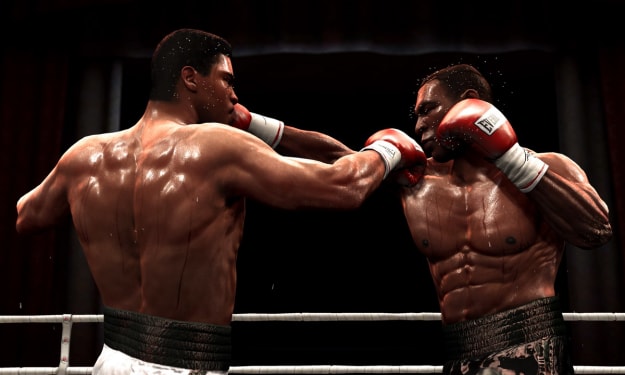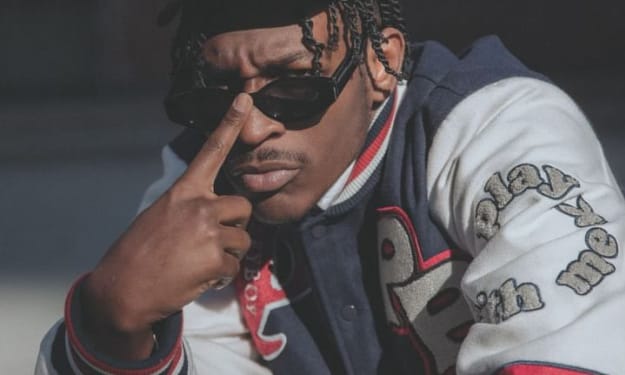What Is Nerdcore?
The 1990s spawned a great deal of considerably strange—or, if you prefer, "different"—genres throughout music, like grunge and alternative; but what is nerdcore?

First officially coined in 2000, of all years, Nerdcore soon grew into its own being from the subtle and somewhat cult-like following of its unnamed youth. Music has its ups and downs, and not all genres and subgenres have the wildest followings as pop, rock, and hip-hop do today, but nerdcore actually proves otherwise. Since the likes of Star Wars and the rise of computers, nerd culture itself has blossomed into the mainstream (almost with many of us not even knowing it).
Likewise, nerdcore itself took root through these means by exploring pop cultural themes that tended to center on nerd-like ideals. Now, what does it mean to be a "nerd," you might wonder. It's particularly simple: styles are heavy with the likes of science fiction, video games, fantasy, and computers. That being said, the following is massive, but the music bases itself on DIY ethics, or in other words, simply lives in a self-publishing industry of musicians. This is to say, it's okay if you don't know what nerdcore is, because very few do in the first place.
How It All Began
Geek culture is the ephemeral roots of nerdcore blended with the rise of gangsta rap in the 1990s. As a music genre, though, nerdcore exploded from the likes of the Beastie Boys' 1998 Hello Nasty, a sci-fi themed hip hop alternative music that took the world by storm.
Then, there's also the likes of 1992-released "I Can't Watch This," by Weird Al Yankovic, adding a sort of parody to the hip hop world, in addition to fusing the sounds of geek rockers with hip hip. Blending punky, alt-sounding and hippy tones with the lyrics of nerd culture soon blossomed into its own subgenre that eventually fueled bigger and better names in the craft.
Into the 2000s
From there grew a form of comedic, nerdy lyrical genius that obviously evolved into what we now know today as nerdcore. Though it's not a major brand in the music industry, nerdcore took on heightened importance within the years of the 2000s, with releases like The Penny Arcade Expo, which basically fueled the music without even having anything to do with it, and the rise of artists MC Frontalot and Optimus Rhyme took hold.
After 2005, "geeksta rap" had become a codified image, a mere glimpse of what was to become of nerdcore, and invited the likes of High-C, plus a feud between MC Plus+ and Monzy, all then coming together in drafting this iconic music into being. By 2008 nerdcore had, itself, taken hold of the limelight and has since gained momentous fame in the underground geek corners.
The Music

Interestingly, while many consider it a form of hip-hop (and some will even fight you over this claim), nerdcore doesn't necessarily fall under any particular or specific sound, but does pertain more so to lyrics than anything else. That's what has made it so revolutionary and, if anything, followed more prominently by those who are a bit more intelligent—I mean that in no offense, but it's nerdcore, after all.
Musically, though, it tends to be a combined effort, since evolving over a period of various tastes and genres in of itself, from rock and hip hop, now to electronic and international. There's even a variety of remixes done that, in many ways, re-imagine the sounds and music of its past so much so that nerdcore, as I said before, never has had to stick to one musical intonation, making it so versatile it's beautiful.
Varied Genres
Nerdcore doesn't specifically stick to hip hop as many seem to believe. In fact, the subgenre itself may have been born more so through the likes of a mixture in the parody sounds of Weird Al, fused with a combination of industrial, hip-hop, and rock mentalities.
That's what makes nerdcore so culturally empowering, not just for nerds all around the world, but for those who have fear in expressing their deepest mentalities. It's a form of underground music that reaches far beyond the normal nodes of the other sounds around, for it combines a long list of possible traits, elements, and musical components into one massive phenomena.
Defining Differentiations
While Nerdcore itself could easily be drawn up into the image of nerdism, nerd culture, and simply nerd ideals, it's not all that easy. Nerdcore took a while to find its most impeccable elements and to strictly harken on what it was, rather than what it meant. This is exactly how the Beatles changed the music industry, transcending the personality and music to become more so a lifestyle than anything else.
For instance, music artists don't always tend to imbue their subject matter into their being—but don't get me wrong, a lot of them do. Nerdcore, however, takes this to another level by making subject matter and self-identification two pieces of the genre that make it true to the listener. For that, there's often skepticism over who exactly are nerdcore artists.
The Artistry

As I said before, there's a variety of genres in relation to nerdcore and its many artists. Read here for the best nerdcore rappers to check our now, or simply peruse the variety of historical people behind the movement itself. I'll break down the list by my own personal favorites:
There's Nerf Herder (a funny reference to Star Wars fans) and The Mathematicians, both of which make more rock than they do hip hop, which is most aptly rendered by the likes of Optimus Rhyme (for those of you Transformer fans out there) and MC Chris. Other well-acclaimed artists include Kompressor, The Laziest Men on Mars, DEVO, and the infamous MC Frontalot.
The Silver Screen
After making it big in music and popularizing the name of nerdcore in the annals of music history, where else is there to go but to the silver screen? While MC Frontalot's documentary is a powerhouse of a musical picture, the less-talked of Nerdcore For Life, which was directed by Dan Lamoureux, is a little more complex and darker.
Lamoureux's epic takes an in-depth look at the music, culture and history of this music scene, generating wide praise in showcasing a wide variety of performers of the craft. It premiered in the Wisconsin Film Festival, and later became viral on a variety of internet channels, as the media took the story by storm.
Both the 2005 official debut album of MC Frontalot, in addition to it being a 2008 documentary pertaining to the genre as a whole, Nerdcore Rising in of itself has become somewhat of an embodiment of the culture behind the music. It may not be the greatest documentary in the world, but it does prove in some way that nerdcore is a growing scene populated by energized and interesting people.
Serving as both a niche genre and a form of geek culture, nerdcore has evolved through these forms in entertainment and will only continue to bring a newfound look at the parody on gangsta rap and the fusing of geek mentalities.
Nerdcore Today

One of the biggest names in nerdcore today is Mikal Khill, who has dominated the genre with two albums released in 2017, Things Are Looking Up and Bring Back My Ghost. While he's obviously not widely popular, Khill has certainly showcased just how he can kill the nerdcore scene, since his development of "sadcore minimalist doomrap,' and other revolutions to the subgenre.
Torrentz, a more internationally-known artist, is also among the more prominent contemporary nerdcore artists. His recent release of Nerdcore International is one that has taken many by storm, and some claim is the best music to come out of not only the artist, but his record label as well. But, what's next?
The Future
So what if the music is more of an underground phenomena that stipulates lyrical tastes in nerd beliefs and culture? The very culture of the nerd has evolved so much so that it, in many more ways than you may even realize, has enveloped into our everyday lives. As such, the claims of nerdcore and its future being quintessential to the music industry itself doesn't surprise me.
What does surprise me, however, is that Esquire's 2007 article wasn't at all taken into consideration. Nerdcore may not have exploded, which is a good thing in my opinion, but it does have much to say on music and may even still add a bit of nerd flavoring to the music industry entirely. Star Wars is back in action, so why not?
About the Creator
George Herman
Call me a nerd, that’s what I am: Star Wars fanatic, Grand Theft Auto champion, comic book connoisseur, and a long-time lyricist. So, call me a nerd, but that’s not all I am!






Comments
There are no comments for this story
Be the first to respond and start the conversation.